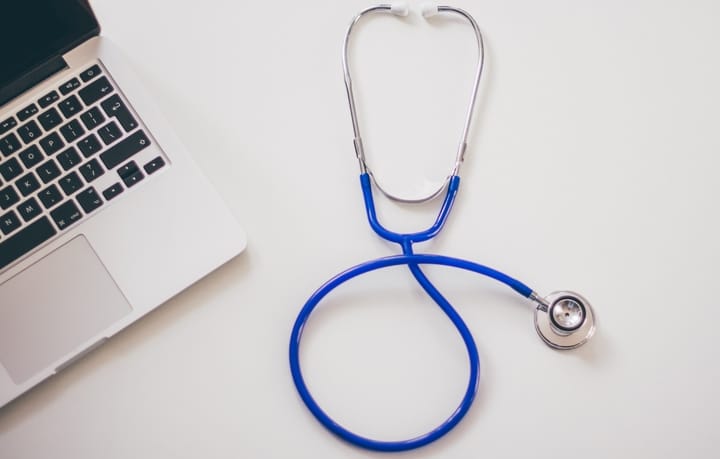In the healthcare industry, technology has revolutionized the way patient data is stored, transmitted, and utilized. Electronic health records (EHRs), telemedicine, and wearable devices have made healthcare more efficient and accessible, but they have also raised significant concerns about patient data security and privacy. The Health Insurance Portability and Accountability Act (HIPAA) plays a crucial role in safeguarding patient information in this digital age. This article explores the challenges and strategies for ensuring HIPAA compliance in a technology-driven healthcare landscape.

Understanding HIPAA Compliance
HIPAA, signed into law in 1996, aims to protect the privacy and security of patient information. The law has two main components: the Privacy Rule and the Security Rule. The Privacy Rule establishes the standards for protecting patients’ sensitive health information, and the Security Rule sets the requirements for securing electronic protected health information (ePHI). To ensure HIPAA compliance, healthcare organizations must implement technical, administrative, and physical safeguards.
Challenges in Achieving HIPAA Compliance
- Evolving Technology Landscape: The rapid advancement of technology creates an ongoing challenge for healthcare organizations. New devices, software, and communication tools are continually being integrated into healthcare systems, which may lead to vulnerabilities if not properly managed.
- Cybersecurity Threats: With the increasing digitization of healthcare data, the risk of cyberattacks and data breaches has grown significantly. Hackers constantly target healthcare organizations due to the value of the information they hold, making it essential to invest in robust security measures.
- Interoperability: The sharing of patient information between different healthcare providers and systems, while crucial for patient care, can present difficulties in maintaining the privacy and security of ePHI. Ensuring interoperability while maintaining HIPAA compliance is a complex challenge.
- Mobile Devices and BYOD: The proliferation of mobile devices in healthcare settings has introduced new risks. Healthcare professionals often use personal devices to access patient data, which can be a security concern if not adequately controlled.
Strategies for HIPAA Compliance in Technology
- Encryption and Access Control: Implement strong encryption for ePHI to ensure that even if data is breached, it remains inaccessible to unauthorized individuals. Access control mechanisms should restrict access to patient data based on user roles and responsibilities.
- Regular Risk Assessments: Conduct thorough and regular risk assessments to identify vulnerabilities in your technology infrastructure. This includes analyzing potential risks in your network, hardware, and software.
- Employee Training: Provide comprehensive training to all staff on HIPAA rules and regulations, emphasizing the importance of data security and privacy. Educated employees are more likely to follow best practices.
- Secure Communication: Ensure that all electronic communication, including emails and messaging platforms, complies with HIPAA requirements. Implement secure communication tools to protect the transmission of ePHI.
- Bring Your Own Device (BYOD) Policies: Establish clear BYOD policies that define the acceptable use of personal devices in the workplace. Implement mobile device management (MDM) solutions to secure and monitor these devices.
- Vendor Management: When integrating third-party technologies into your healthcare system, assess their HIPAA compliance. Ensure that vendors sign business associate agreements (BAAs) to legally bind them to protect patient data.
- Disaster Recovery and Backup Plans: Develop comprehensive disaster recovery and backup plans to ensure the availability and integrity of patient data in case of system failures, natural disasters, or cyberattacks.
- Interoperability Standards: Embrace industry-standard interoperability protocols and guidelines to enable secure data sharing between healthcare providers and systems. This can help ensure the integrity of ePHI when it’s exchanged between entities.
- Incident Response Plans: Prepare and regularly update incident response plans to address data breaches and security incidents swiftly and effectively. These plans should outline the steps to take when a security incident occurs.
- Compliance Audits: Regularly audit and monitor your organization’s compliance with HIPAA regulations. These audits can help identify areas that require improvement and ensure ongoing adherence to the law.
What is new in HIPPA 2023?
HIPPA has introduced a plethora of changes in 2023. Some of these adjustments are minor, while others will have a massive impact on the healthcare industry. Some of these changes include:
- Patients being allowed to take notes and pictures of PHI
- The access time for PHI being extended from 15 days to 30 days
- ePHI transfers being restricted for third parties
- Having a statement for when people should be provided ePHI for free
- Change in wording for PHI from a threat of health being “serious and imminent” to “serious and reasonably foreseeable.”
Summary of HIPPA
Technology has undoubtedly improved the efficiency and quality of healthcare services. However, the integration of technology in healthcare also brings significant challenges, especially concerning the protection of patient information. HIPAA compliance remains essential in this technology-driven era, requiring healthcare organizations to adopt a multifaceted approach that combines robust technical safeguards, administrative procedures, and physical security measures. By embracing these strategies, healthcare providers can harness the benefits of technology while safeguarding patient privacy and security, ultimately fulfilling the core principles of HIPAA. If you have any questions about making sure that your technology is HIPPA compliant, please contact Dymin with this link.

